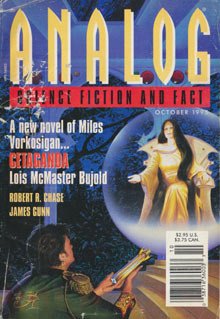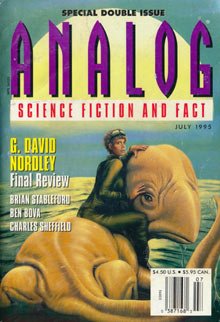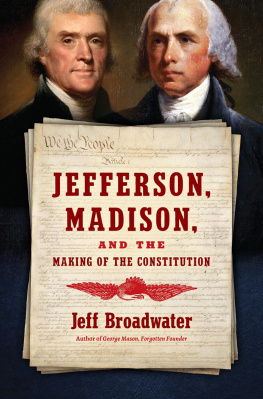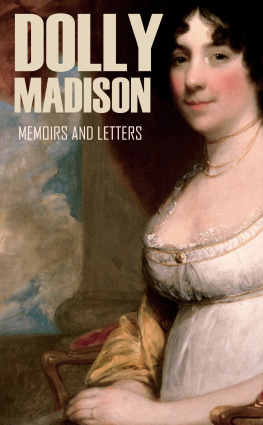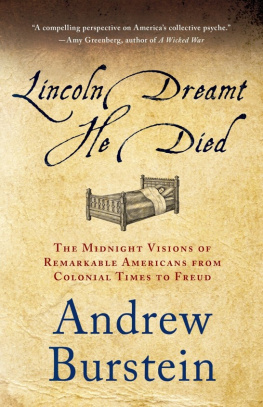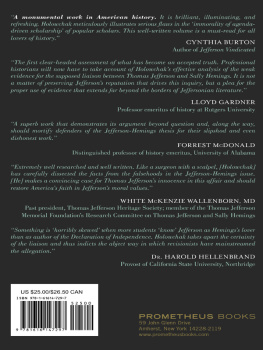Andrew Burstein - Madison and Jefferson
Here you can read online Andrew Burstein - Madison and Jefferson full text of the book (entire story) in english for free. Download pdf and epub, get meaning, cover and reviews about this ebook. year: 2010, publisher: Random House, genre: Politics. Description of the work, (preface) as well as reviews are available. Best literature library LitArk.com created for fans of good reading and offers a wide selection of genres:
Romance novel
Science fiction
Adventure
Detective
Science
History
Home and family
Prose
Art
Politics
Computer
Non-fiction
Religion
Business
Children
Humor
Choose a favorite category and find really read worthwhile books. Enjoy immersion in the world of imagination, feel the emotions of the characters or learn something new for yourself, make an fascinating discovery.

- Book:Madison and Jefferson
- Author:
- Publisher:Random House
- Genre:
- Year:2010
- Rating:3 / 5
- Favourites:Add to favourites
- Your mark:
- 60
- 1
- 2
- 3
- 4
- 5
Madison and Jefferson: summary, description and annotation
We offer to read an annotation, description, summary or preface (depends on what the author of the book "Madison and Jefferson" wrote himself). If you haven't found the necessary information about the book — write in the comments, we will try to find it.
Madison and Jefferson — read online for free the complete book (whole text) full work
Below is the text of the book, divided by pages. System saving the place of the last page read, allows you to conveniently read the book "Madison and Jefferson" online for free, without having to search again every time where you left off. Put a bookmark, and you can go to the page where you finished reading at any time.
Font size:
Interval:
Bookmark:

Also by Andrew Burstein
The Original Knickerbocker:
The Life of Washington Irving
Jeffersons Secrets:
Death and Desire at Monticello
The Passions of Andrew Jackson
Letters from the Head and Heart:
Writings of Thomas Jefferson
Americas Jubilee: How in 1826 a Generation
Remembered Fifty Years of Independence
Sentimental Democracy:
The Evolution of Americas Romantic Self-Image
The Inner Jefferson:
Portrait of a Grieving Optimist
Also by Nancy Isenberg
Fallen Founder: The Life of Aaron Burr
Sex and Citizenship in Antebellum America
Co-edited by Nancy Isenberg and Andrew Burstein
Mortal Remains: Death in Early America
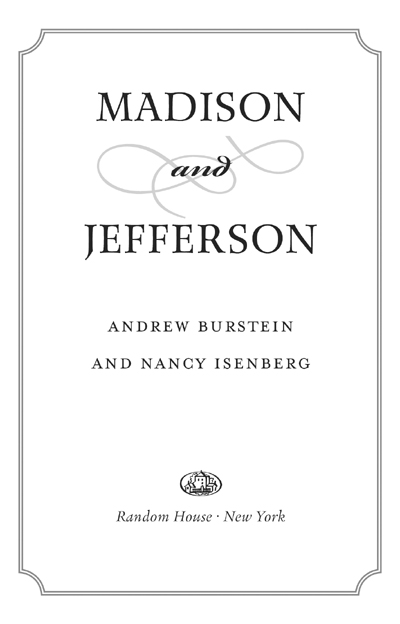
Copyright 2010 by Andrew Burstein and Nancy Isenberg
Map copyright 2010 by Daniel R. Lynch
All rights reserved.
Published in the United States by Random House, an imprint of The Random House Publishing Group, a division of Random House, Inc., New York.
R ANDOM H OUSE and colophon are registered trademarks of Random House, Inc.
LIBRARY OF CONGRESS CATALOGING-IN-PUBLICATION DATA
Burstein, Andrew.
Madison and Jefferson / Andrew Burstein and Nancy Isenberg.
p. cm.
eISBN: 978-0-679-60410-5
1. Jefferson, Thomas, 17431826Friends and associates. 2. Madison, James, 17511836Friends and associates. 3. United StatesPolitics and government17891815. 4. United StatesPolitics and government17751783. 5. United StatesPolitics and government17831865. 6. Founding Fathers of the United StatesBiography. 7. PresidentsUnited StatesBiography. I. Isenberg, Nancy. II. Title. III. Title: Madison and Jefferson.
E332.2.B864 2010 973.46092dc22 2010005884
www.atrandom.com
v3.1
To Jeannie. To David.
And to all who appreciate the true complexity of the past.
There is very little difference in that superstition whichleads us to believe in what the world calls great men and in that which leads us to believe in witches and conjurors.
DR. BENJAMIN RUSH TO JOHN ADAMS , 1808
THOMAS JEFFERSON (17431826) AND JAMES MADISON (17511836) were country gentlemen who practiced hardball politics in a time of intolerance. As agents of the American Enlightenment, they took premeditated action to overturn ingrained ideas they saw as insidious and unrepublican. As keen political operatives, they fought to humble some equally determined individuals whom they considered misguided or simply threatening. Like all politicians, Madison and Jefferson walked a fine line in condemning corruption while exercising power. They risked their personal prestige because they saw imminent danger. They were watchful. They were guarded. Their times did not allow for complacency.
We need a better understanding than we currently possess of the strong-willed politicians who helped mold the United States. Our modern leaders quote the founders in magnificent tones, hoping to obtain insights into their minds. But they know them mainly as indefatigable characters in an oft-told and problematic storythey tend to see the founders as they were on their best days. The discipline of history exists to reexamine time-honored treatments of people and events, and to separate myth from reality. Historians are concerned, above all, with accuracy in interpretation. As researchers, they are expected to navigate competing explanations and sort out ideological biases. That is how this book came about.
Previous biographers are not in all ways to blame for common effusions and misconceptions. Present beliefs about the early years of the American republic derive to a considerable extent from falsehoods the participants themselves planted, their filial offspring nurtured, and commemorative ritual compounded. Each generation gets to weigh in anew.
One might expect this book to be titled Jefferson and Madison rather than Madison and Jefferson. Its closest relative, Jefferson and Madison: The Great Collaboration (1950), by Adrienne Koch, remains a serviceable piece of scholarship. The ever-quotable author of the Declaration of Independence took precedence in Kochs title for the same reason that a beautiful monument was erected to his memory in the Tidal Basin of Washington, D.C., in 1943. Madison, the dry, distant Father of the Constitution, generated little posthumous sentiment.
Textbooks highlight the Age of Jefferson. Madisons high point as a public figure is generally associated with the one banner year of 1787, when the Constitutional Convention met; his low point was an unheroic flight from the Presidents House during the British invasion of 1814. His manner and moods remain obscure, his long congressional career understudied. What could be a better invitation to learn more?
Our title is not meant to be cute or ironic. It is not to degrade Jefferson as a force in politicsnot one iotabut rather to suggest that it is time to reevaluate their relationship and their distinct individual contributions. Popular historians have done precious little with Madison. And while political scientists have boiled him down to his noteworthy contributions to The Federalist Papers, the historians who place him within the larger context of party formation have presented Madison as a man unaffected by an emotional life, a man eclipsed by the more magnetic, more affecting Jefferson.
People have long been tempted to compare the third and fourth presidents. In 1824 an itinerant bookseller called on the Virginia neighbors. Jefferson was a man of more imagination and passion, he said; Madison, more natural, candid and profound. What exactly does this distinction mean? Did Madison lack imagination and passion? Was Jefferson less profound? The bookseller had spent too little time with his potential customers to know them at all well, and he was speaking in relative terms anyway.
As a persuasive stylist, Jefferson described the idea of America in ways that students of history have long admired. Investing his words with lyrical power, he indulged often in a sentimental idiom. So yes, he possessed imagination and passion. Madison had a literary faculty too, and a rich wit. But he succeeded foremost as a deliberative, direct, and usually (though not always) tactful legislator. Stepping before the public, he was not concerned with style in the way Jefferson was. Madison preferred to supply information that enlivened an intellectual atmosphere. So yes, he was both candid and profound.
Even though Madison was unsentimental, he was every bit as intense as his more inspirational friend. Those who write about the American founding are dead wrong when they make Madison stiff and stilted. And some historians have rendered Jefferson so placid and elegant as to deprive him of spontaneous moments. Men and women who observed them at their most relaxed, in close quarters, remarked that Madisons facility for conversational humor sometimes led him to make Jefferson the butt of a joke, and Jefferson to laugh so well that he nearly cried. The chapter headings alone instruct the reader that ours is a book about the ruthlessness of politics, aimed at demonstrating what is missing from the genre of Revolutionary heroics. Yet we do not lose sight of the power of personality, without which the annals of time would be cold, linear histories featuring absurdly rational actors.
Font size:
Interval:
Bookmark:
Similar books «Madison and Jefferson»
Look at similar books to Madison and Jefferson. We have selected literature similar in name and meaning in the hope of providing readers with more options to find new, interesting, not yet read works.
Discussion, reviews of the book Madison and Jefferson and just readers' own opinions. Leave your comments, write what you think about the work, its meaning or the main characters. Specify what exactly you liked and what you didn't like, and why you think so.

